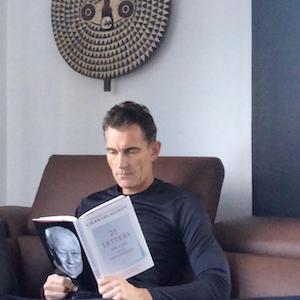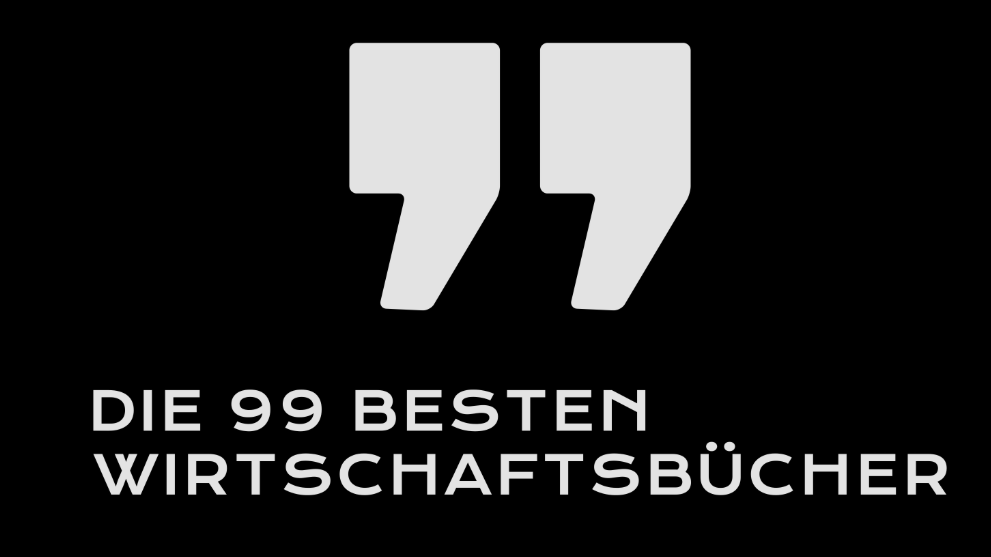Hinweis: Diese Website wird seit Juni 2024 nicht mehr aktualisiert. Hier geht es zur Nachfolgeseite: REBEL MIND BOOKS
21 Letters on Life and Its Challenges – Charles Handy

Das schreibt der Verlag: „Charles Handy is one of the giants of contemporary thought. His books on management – including Understanding Organizations and Gods of Management – have changed the way we view business. His work on broader issues and trends – such as Beyond Certainty and The Second Curve – has changed the way we view society.
In his new book, Handy builds on a life’s work to glimpse into the future and see what challenges and opportunities the next generation faces. How will people cope with change in a world where the old certainties no longer apply? What goals will and should they set themselves? How will they find purpose and fulfillment in their lives? Clear-eyed and optimistic by turns, he sets out the questions that everyone needs to ask themselves, and points us in the direction of the answers.”
Was ich mir aus „21 Letters on Life and Its Challenges“ rausgeschrieben habe
Letter 2: The human imperative
“… think the best of people until you are proved wrong. It has led me down some false alleys but also produced some wonderful experiences. I like, therefore, the old rule of the Cold War negotiations: ‘Trust but verify.’“
Letter 3: Life’s biggest question
„… I now believe that we each have in us what I call a ‘golden seed’: a special talent, skill or aptitude. If you know what it is, or if someone close to you can spot it, if you then fertilize it and give it room to grow, it will eventually allow you to be the best at what you are best at, and if you do so while being a good and honest person, you will have a purposeful and fulfilling life.“
Letter 4: God or what
„… it is, I believe, one of the responsibilities of parents, teachers and bosses to seek to identify your specialness, or what I called your golden seed, and the help you to let it grow. Education should be about bringing things out of you as well as putting stuff in.“
Letter 5: Everyone can be wrong
„… I was first ignored, and then scorned and ridiculed, until, years later, they said, ‘Well, that was obvious,’ when some of my fears and ideas proved to be only too real. It was in those times that I remembered Galileo and Copernicus. Take nothing for granted, question everything, doubt the certainty of your superiors but sometimes keep your doubts to yourself until the time is right.“
Letter 6: Curiosity does not kill the cat
“… that’s what curious travel can do. It can stimulate you to think differently, to provide alternative models for life when you observe how other people live and work.”
Letter 7: How clever are you?
“…it is the one great paradox of education that all the really important things you need to learn about life cannot be taught … a school or college can give us the roots but the growth depends on us … learning is experience understood in tranquillity, with help … quoting Ernst Schumacher: ‘Our ordinary mind always tried to persuade us that we are nothing but acorns and that our greatest happiness will be to become bigger, fatter, shinier acorns; but this is of interest only to pigs. Our faith gives us knowledge of something better: that we can become oak trees.’”
Letter 15: It’s the economy, stupid
“… I eventually stopped searching for that elusive perfect job and realized that I had to combine two or three different types of work, what I called a work portfolio, to get the right combination of money, enjoyment and fulfillment … life is too precious to waste it on making money.”
Letter 16: ‘We’ beats ‘I’ all the time
“…we used to divide our friends into two groups: the drains and the radiators. Drains sap your energy, leaving you wondering when they will leave. The radiators are the ones who, when we meet, enrich our lives with their ideas and their energy … our little game was a way of reminding ourselves to be more radiator than drain in our own friendships … perhaps you only know how special someone or something is when you have lost it. So it is with friendship. Never take it for granted. Cherish those special friends. You will miss them if they go.”
Letter 21: My last words
“Trust yourself, don’t be afraid to make mistakes, be honest even if it costs you, remember the proverb that happiness is having something to work on, something to hope for and someone to love … may your lives be fulfilling, worthwhile and enjoyable, and at the end may you have no regrets for what you left undone.”
Meine ganz persönliche Meinung
- Charles Handy ist seit ewigen Zeiten einer meiner absoluten Lieblingsautoren. Jedes seiner Bücher habe ich mehrfach verschlungen. In seinem aktuellen – und wahrscheinlich letzten – Buch “21 Letters on Life and Its Challenges” teilt der 88 jährige ‚Social Philosopher‘ seine Erkenntnisse aus einer lebenslangen Auseinandersetzung mit der sich wandelnden Arbeits- und Berufswelt in Form von 21 Briefen an künftige Generationen – in diesem Fall an seine Enkelkinder.
- Das Buch ist sehr persönlich und stark vom Verlust seiner Ehefrau Elizabeth geprägt. Einer talentierten Fotografin und seinem „besten Freund“. Glück, erinnert Handy seine Enkelkinder, bedeute, „having something to work on, something to hope for and someone to love“, und drängt sie, den „golden seed“ ihres Potenzials zu finden, das jeder besitzt.
Leseempfehlung
Wie werden wir in einer Welt zurechtkommen, in der die alten Sicherheiten nicht mehr existieren? Wie werden wir Sinn und Erfüllung in unserem Leben finden? Wir können wir wachsen, lernen und den „golden seed“ unseres Potenzials finden, der in uns steckt? – wenn solche Fragen dich beschäftigen, findest du in „21 Letters on Life and Its Challenges“ großartige Impulse. Herzerwärmend, immer optimistisch, voller Humor, Bescheidenheit und Menschlichkeit.
Wenn dir "21 Letters on Life and Its Challenges" von Charles Handy gefällt, werden dir auch "Der Sinn des Unternehmens" von Dominic Veken, "Stark in stürmischen Zeiten" von Bodo Janssen u. Anselm Grün und "Genug" von John Naish gefallen. Hier geht es zurück zur Übersicht der besten Wirtschaftsbücher.
